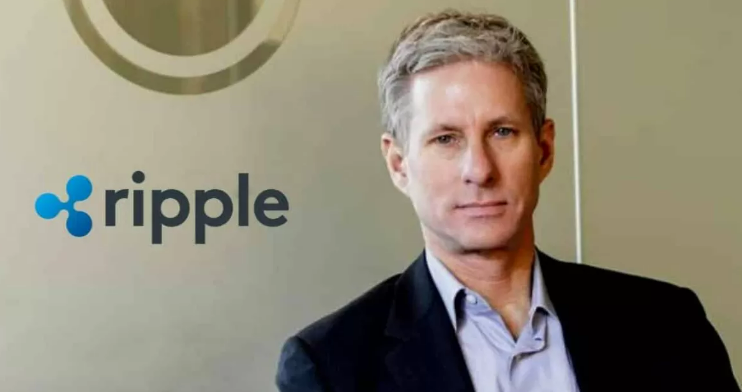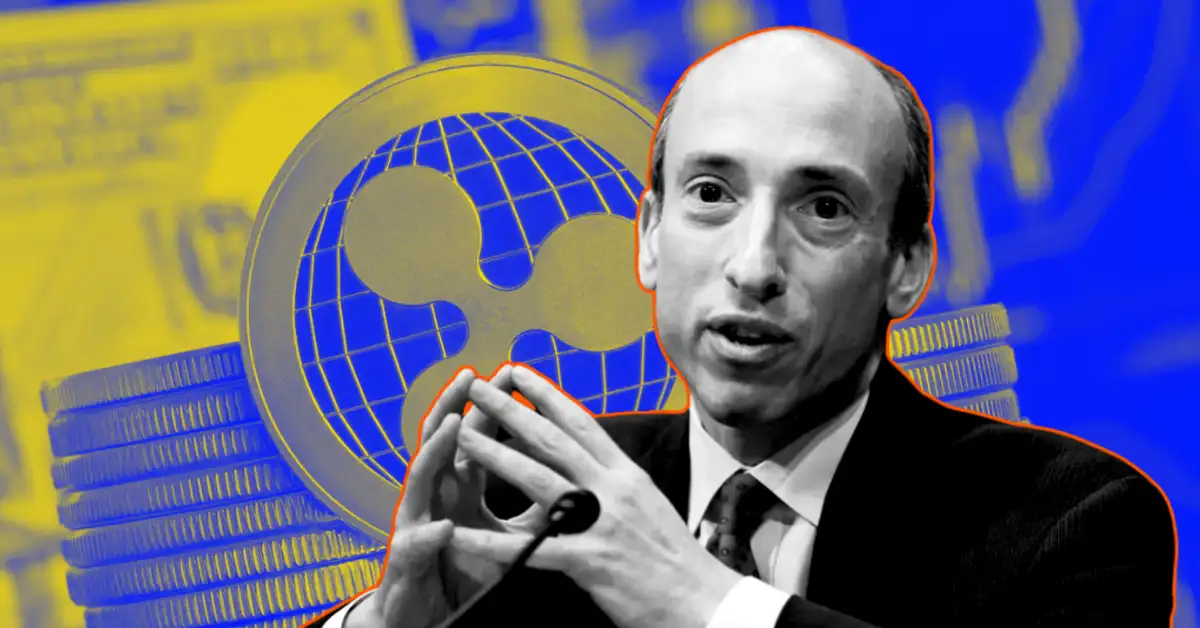Ripple Labs Founder: A Deep Dive into Chris Larsen’s Impact and Contributions
Chris Larsen, the founder of Ripple Labs, has revolutionized how money moves across borders using blockchain technology. This article dives into his journey from his early life to establishing Ripple Labs Founder, highlighting his major achievements and impact on the fintech industry.
Key Takeaways
- Chris Larsen co-founded multiple innovative financial platforms, including E-Loan and Prosper Marketplace, that democratized access to financial services and paved the way for future fintech advancements.
- As a pioneer in blockchain technology, Larsen played a crucial role in the evolution of Ripple Labs, which transformed international money transfers with its groundbreaking Ripple payment protocol.
- Larsen’s advocacy for consumer rights and privacy, alongside his philanthropic contributions, underscores his commitment to creating a fairer and more transparent financial system in the evolving fintech landscape.
Chris Larsen’s Early Life and Education

Chris Larsen was born in 1960 in San Francisco, a city known for its innovative spirit and diverse culture. His upbringing was shaped by his parents’ blue-collar professions—his mother was a freelance illustrator, and his father worked as an aircraft mechanic. This environment instilled in Larsen a strong work ethic and a practical approach to problem-solving, traits that would later define his career.
Larsen earned a B.S. in international business and an MBA from Stanford Graduate School of Business in 1991. Early in his career, he conducted financial audits at Chevron, gaining experience that would later benefit his entrepreneurial pursuits.
These experiences combined technical knowledge with business strategy, laying the foundation for his future successes.
The Birth of E-Loan (1992-1998)
In 1992, Chris Larsen co-founded E-Loan, a pioneering online lending platform. With an initial investment of $450,000, Larsen and his colleague set out to revolutionize the mortgage industry by eliminating broker fees and allowing consumers to compare mortgage options directly. This innovative approach democratized access to financial information, empowering consumers like never before.
The launch of E-Loan’s website in 1997 marked a significant milestone, making it one of the first online mortgage lenders. By 1998, E-Loan had generated annual revenues of $6.8 million, despite facing funding challenges. One of E-Loan’s most notable contributions was providing consumers with free access to their FICO credit scores, a first in the industry. This transparency shifted the power balance towards consumers, fostering trust and loyalty.
However, the path was not without obstacles. By 1998, E-Loan struggled with funding operations, reflecting the volatile nature of the early internet economy. Despite these challenges, Larsen’s vision and determination kept the company afloat, setting the stage for its future growth and success.
E-Loan’s Growth and Public Offering (1998-2000)
By 1998, E-Loan had become a major force in the online mortgage market, handling 25% of all online mortgage loans by 1999. The company employed around 350 people, reflecting its rapid growth and the increasing demand for its services. This period was marked by significant milestones, including a public offering that provided the necessary capital to expand its operations and enhance its platform.
Overcoming initial funding challenges, E-Loan’s total loan volume surpassed $18.9 billion by May 2004, highlighting the platform’s significant value to consumers. The company’s innovative model and consumer-centric approach resonated with the market, solidifying its position as a leader in online lending.
The journey presented hurdles, including the volatile financial markets and the constant need for capital. Nevertheless, Larsen’s leadership ensured E-Loan’s continued growth and eventual success, setting the stage for his next major venture.
Advocacy and Sale of E-Loan (2001-2005)
Chris Larsen’s commitment to consumer rights extended beyond E-Loan. In 2001, he co-founded Californians for Privacy Now, advocating for the protection of consumers’ financial information. This group successfully funded a pivotal privacy bill that passed in 2003, demonstrating Larsen’s dedication to financial privacy. His advocacy efforts were instrumental in raising awareness and driving legislative change, showcasing his broader impact on the financial industry.
In 2005, after selling over $18.9 billion in loans and achieving profitability for eight consecutive quarters, Larsen left E-Loan. The sale of E-Loan marked the end of a significant chapter in his career, but it also set the stage for his next venture—one that would further revolutionize the financial landscape.
Founding Prosper Marketplace (2005-2011)
In 2005, Larsen co-founded Prosper Marketplace, an innovative online platform designed to connect borrowers and lenders directly. As CEO, Larsen introduced a unique auction system for interest rates, allowing borrowers to apply for personal loans with more favorable terms. This peer-to-peer lending model democratized access to credit, providing opportunities for individuals who might have been underserved by traditional financial institutions.
Prosper Marketplace quickly gained traction, facilitating over $120 million in loans by 2008, with an average loan size of $7,000. Larsen’s leadership and vision were crucial in navigating the regulatory challenges that arose during this period, ensuring the platform’s continued growth and success. His ability to adapt and innovate in the face of adversity highlighted his resilience and strategic acumen.
During his tenure, Larsen funded 450 loans through Prosper Marketplace, showcasing the platform’s diverse borrower base and its potential to transform the lending industry. His work with Prosper further solidified his reputation as a pioneer in fintech, setting the stage for his next groundbreaking venture—OpenCoin, which would later become Ripple Labs.
OpenCoin and the Evolution to Ripple Labs (2012-2020)

In 2012, Chris Larsen co-founded OpenCoin with the vision of developing a new digital payment protocol called Ripple. This period marked the beginning of a transformative journey for Larsen and his team, as they set out to revolutionize the way money is transferred across borders.
The evolution of OpenCoin into Ripple Labs would become a pivotal moment in the history of blockchain technology, leading to significant advancements and widespread adoption.
Establishing OpenCoin
The establishment of OpenCoin in 2012 was a bold move aimed at creating Ripple, a payment protocol designed for instant money transfers. Larsen and his co-founder Jed McCaleb envisioned a system that could facilitate seamless transactions without the delays and costs associated with traditional banking. This vision was aligned with the broader goals of the emerging blockchain technology, which promised greater efficiency and transparency in financial transactions.
By 2015, OpenCoin had become Ripple Labs, marking its shift towards becoming a major player in the blockchain space. This transformation underscored the company’s commitment to leveraging blockchain technology to enhance the global financial system, setting the stage for its future growth and success.
Rebranding to Ripple Labs
In September 2013, OpenCoin rebranded as Ripple Labs following stakeholder feedback. This shift signaled a deeper commitment to blockchain technology and its potential to revolutionize financial transactions. The rebranding helped attract significant investments from notable entities like Andreessen Horowitz and Google Ventures, providing the capital needed to scale operations and innovate further.
This strategic move paid off, positioning Ripple Labs as a leader in the blockchain industry. The company’s focus on developing a robust payment protocol resonated with investors and partners alike, laying the foundation for its continued success and expansion.
Key Collaborations and Investments
Key figures like David Schwartz, Jed McCaleb, and Arthur Britto, working alongside Chris Larsen, bolstered Ripple Labs’ success. Their combined expertise and vision were instrumental in driving the company’s development and innovation.
Investments from entities such as Andreessen Horowitz, Google Ventures, and IDG Capital Partners provided the financial backing to propel Ripple Labs to new heights. These collaborations and investments were crucial in establishing Ripple as a dominant force in the blockchain industry, enabling it to form partnerships with over 300 financial institutions worldwide.
Political Contributions and Philanthropy

Chris Larsen’s influence extends beyond the corporate world into the realm of political contributions and philanthropy. In 2001, he co-founded Californians for Privacy Now, advocating for consumer financial privacy and investing $1 million to support a pivotal privacy bill that passed in 2003. His commitment to financial privacy is further evidenced by his orchestration of a campaign that gathered 600,000 signatures in support of the bill.
Larsen’s philanthropic efforts are also noteworthy. He has been an active supporter of various causes, including the Occupy Wall Street movement in 2011, where he funded initiatives for local protesters. His donations to political causes, such as the $1 million contribution to the Future Forward PAC supporting Kamala Harris, reflect his ongoing commitment to shaping a fairer and more transparent financial system.
Through his advocacy and philanthropy, Larsen has demonstrated a deep commitment to financial privacy and user data protection, aligning Ripple’s mission with broader goals of decentralization and transparency within the cryptocurrency community.
Ripple’s Legal Challenges and SEC Lawsuit

Ripple’s journey has not been without legal challenges. The company is currently embroiled in a lawsuit with the SEC, which questions the regulatory status of its XRP token. This legal battle has significant implications for Ripple’s market perception and operational capacity, highlighting the regulatory hurdles that the company must navigate.
A pivotal moment came when the SEC decided that XRP is not a security, allowing Ripple to expand its operations. Chris Larsen has been vocal about the recent court rulings, emphasizing their importance for the cryptocurrency industry and advocating for a more favorable regulatory environment in the U.S.
Despite these challenges, Larsen remains committed to guiding Ripple through the regulatory landscape, ensuring the company continues to innovate and lead in the blockchain space. His efforts underscore the importance of regulatory clarity for the growth and stability of the cryptocurrency industry.
Impact on Blockchain Technology and Industry
Chris Larsen’s contributions to blockchain technology and the industry are profound. By 2014, Ripple was the second-largest cryptocurrency, trailing only Bitcoin. This achievement underscored its considerable influence on the market. Larsen’s vision of transforming international payments through blockchain technology has made transactions faster and more cost-effective, benefiting both consumers and financial institutions.
Ripple’s partnerships with over 300 financial institutions, including major banks, underscore its importance in the evolution of the cryptocurrency and blockchain sectors. The company’s innovative approach to cross-border payments has set new standards for efficiency and transparency in the financial industry.
Despite regulatory challenges, Ripple’s mission of providing efficient cross-border payment solutions continues to drive its development and adoption. Larsen’s ongoing influence in the fintech landscape is a testament to his vision and commitment to leveraging blockchain technology for the betterment of the financial system.
Chris Larsen’s Current Role and Future Vision
Chris Larsen currently serves as the Executive Chairman of Ripple Labs, actively shaping the company’s strategic direction. In this role, he influences Ripple’s initiatives and navigates the rapidly changing fintech landscape, ensuring that the company remains at the forefront of innovation.
Looking ahead, Larsen envisions Ripple leading in the blockchain industry, promoting sustainable and efficient financial practices. His commitment to improving the financial system through innovative technology and strategic partnerships highlights his enduring influence and vision for the future of fintech.
Summary
Chris Larsen’s journey from his early days in San Francisco to becoming a key figure in the fintech and blockchain industries is a testament to his vision and resilience. His work with E-Loan, Prosper Marketplace, and Ripple Labs has revolutionized financial transactions, making them more accessible, efficient, and transparent.
Through his advocacy for financial privacy and his philanthropic efforts, Larsen has shown a deep commitment to improving the financial system for all. As Executive Chairman of Ripple Labs, he continues to shape the future of blockchain technology, ensuring that his legacy of innovation and positive impact endures.
Frequently Asked Questions
What is Chris Larsen’s role in Ripple Labs?** **?
Chris Larsen serves as the Executive Chairman of Ripple Labs, where he plays a crucial role in shaping the company’s strategic direction and initiatives in the blockchain industry.
What was E-Loan’s major contribution to the mortgage industry?** **?
E-Loan’s major contribution to the mortgage industry was its elimination of broker fees and its introduction of direct consumer access to mortgage comparisons and free FICO credit scores. This innovation empowered consumers and transformed the way mortgages were accessed.
How did Chris Larsen contribute to financial privacy advocacy?** **?
Chris Larsen significantly advanced financial privacy advocacy by co-founding Californians for Privacy Now and investing $1 million to support a successful privacy bill in 2003. His campaign effectively mobilized 600,000 signatures, demonstrating his strong commitment to protecting privacy rights.
What are some of Ripple’s key partnerships?** **?
Ripple’s key partnerships include collaborations with over 300 financial institutions, notably major banks, underscoring its pivotal role in the cryptocurrency and blockchain landscape. These alliances emphasize Ripple’s commitment to facilitating secure and efficient cross-border transactions.
What was the outcome of the SEC lawsuit against Ripple?** **?
The SEC lawsuit against Ripple resulted in a key ruling that XRP is not considered a security, which allowed Ripple to expand its operations. Despite this victory, ongoing regulatory challenges still affect Ripple’s market perception and operations.

